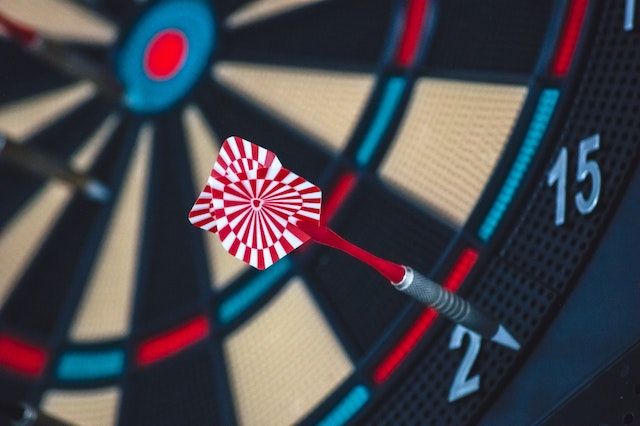How do you measure the success of your music marketing plan? Best tips to follow

Table of content
How do you measure the success of your music marketing plan? Best tips to follow - Introduction
The career of music artists can only exist by marketing their music.
That’s because marketing, as in any other business, enables them to increase the number of people who hear their music, grow their fan base, and eventually succeed in the music business.
Merely making fantastic music and releasing it into the world is insufficient in today's constantly changing digital environment, and it's here where your music promotion marketing plan kicks in.
It's crucial to evaluate the efficacy of your promotional activities and keep them constantly under control if you want to succeed with music promotion.

Measuring success is just too vital since it enables you to identify what is and is not working with your marketing efforts.
You can invest time, energy, and resources in strategies that don't produce a return on investment if you don't measure success, which might limit your progress and growth in the music industry and put all your efforts to waste.
By the conclusion of this article, you will have a clear grasp of how to evaluate the results of your music marketing efforts, with the final goal of utilizing that knowledge to accomplish your musical objectives.
KEY TAKEAWAYS
Setting Clear Goals and Objectives: The article emphasizes the importance of defining achievable and realistic goals for your music marketing plan. These goals serve as the foundation for all subsequent promotional activities and help in measuring success.
Identifying Key Performance Indicators (KPIs): The article outlines various KPIs that are crucial for assessing the effectiveness of your music promotion efforts. These include social media engagement, website traffic, streaming numbers, and sales metrics.
Utilizing Analytics Tools: The article discusses the role of analytics platforms like Google Analytics, Hootsuite, and Spotify for Artists in gathering data. This data is essential for evaluating the success of your marketing strategies and making informed decisions.
Adapting Strategies Based on Data: The article advises on the importance of being flexible and willing to adapt your marketing strategies based on the data you collect. This ensures that your promotional efforts remain effective and aligned with your goals.
Leveraging Platforms like CalypsoRoom: The article introduces CalypsoRoom as a unique platform that allows for real-time interaction with your audience. This can enhance fan engagement and contribute to the overall success of your music marketing efforts.
Identify your goals and objectives
Defining your goals and objectives is necessary before you can evaluate the efficacy of your music marketing strategy since it gives your promotional activities a clear direction, keeps you focused, and makes it simpler to analyze if you're getting the desired results.

Your goals and objectives must be achievable and realistic. Setting unrealistic expectations for yourself might drain your motivation and make you feel like a failure.
Conversely, establishing too simple goals might be uninteresting and lacking in substance. The secret is to strike a balance and set demanding yet attainable goals.
Do you want more people to visit your website, attend live performances, or grow your following on social media?
Once you've determined your overall goal, divide it into more manageable, quantifiable subgoals.
For instance, if you aim to grow your social media following, a particular objective may be adding 100 new Instagram followers next month.

Setting a deadline for completing your goals is also very important because it evokes a feeling of urgency and helps maintain focus and attention on your goals.
So it's crucial to be realistic about your schedule and allow yourself enough time to accomplish your goals without compromising the quality of your marketing efforts.
Determine the key performance indicators
It's critical to choose key performance indicators (KPIs) that will allow you to measure the effectiveness of your music promotion strategies once you've established your goals and objectives.
Several KPIs are pertinent to assessing performance in the context of music promotion initiatives. They consist of the following:
Social media engagement: Engagement on social networking sites like CalypsoRoom, Twitter, and Instagram includes likes, shares, comments, and follows. Because it shows how well your music is connecting with your audience and how involved your followers are with your material, social media engagement is a crucial KPI.

Website traffic: This KPI tracks the volume of visitors to your website. You can evaluate how well your website is doing and whether your advertising activities bring visitors to your site by monitoring the volume of people that land on your website.
Streaming numbers: This KPI tracks how often your music is streamed on services like Spotify and Apple Music. Streaming numbers are essential because they reflect how well your audience receives your music and whether your promotional activities lead to higher streams.
Sales: This KPI tracks how many albums or singles, merchandise, and concert tickets have been sold. Monitoring sales is crucial because it gives you a clear indication of your performance in the music business.
Concert attendance: This KPI counts how many people come to your concerts, and this is key as it shows how effectively your music connects with your audience and how effective your live shows are.

Analyze your data
Analyzing your data is the next stage in evaluating the effectiveness of your music promotion efforts once you've chosen your KPIs. Data analysis technologies include Google Analytics, social media analytics, and streaming platforms.
With Google Analytics, you learn more about how visitors engage with your website, which pages are the most popular, and which marketing tactics bring visitors to your site.
Hootsuite, Sprout Social, and Buffer are analytics platforms that give you information about your social media performances and interactions, including likes, shares, comments, and follows.
We assume you already know that streaming services like Spotify, Apple Music, and YouTube offer data analytics tools that let you do your streaming statistics, demographic data, and engagement metrics.

With the help of these tools, you can determine which of your songs are the most popular and which streaming platforms account for the most streams, giving you a chance to tailor your marketing strategy to just a few of them.
Budgeting is an often overlooked yet critical aspect of any successful music promotion strategy. Knowing how much to spend and where to allocate resources can make a significant difference in the effectiveness of your campaign.
In a 2015 campaign, the Chemical Brothers utilized social networks and their own website to engage fans, operating on a budget of £2k - £5k and achieving significant reach and engagement.
This example illustrates the power of a well-planned budget in achieving your promotion goals.

Adapt your strategies
The following stage is to modify your plans in consideration of your results once you have studied your data and determined how successfully your music marketing techniques have worked.
For instance, you might need to change your social media approach if you discover that your social media engagement is low by producing more exciting material or publishing more frequently.
You may need to concentrate on enhancing your website's search engine optimization (SEO) or developing more persuasive landing pages if you discover that your website traffic could be better.

When modifying your marketing strategy, it's critical to be adaptable and responsive to developments in the music industry.
New platforms and technologies are continually developing due to the music industry's ongoing evolution.
It's critical to keep faithful to your brand, adhere to your artistic vision, and modify your techniques in light of your data. While adjusting to industry changes is essential, you want to maintain your brand and style.
Actionable steps for measuring your music promotion success
Understanding the theory behind successful music promotion is essential, but putting that knowledge into practice is where the real magic happens.
These are tried-and-true methods that can provide you with tangible metrics and results, allowing you to fine-tune your strategies for maximum impact:
Set Up Google Analytics for Your Website: If you haven't already, set up Google Analytics to track visitor behavior on your website. This will give you insights into how effective your promotion strategies are in driving traffic.
Monitor Social Media Engagement: Use tools like Hootsuite or Buffer to track likes, shares, and comments on your social media posts. High engagement rates are a good indicator of a successful promotion.

Analyze Streaming Data: Platforms like Spotify for Artists provide valuable data on listener demographics and song performance. Regularly check these metrics to gauge the success of your music promotion.
Conduct A/B Testing for Email Campaigns: If you're using email marketing as part of your promotion strategy, conduct A/B tests to find out which types of content and subject lines resonate most with your audience.
Review Sales and Revenue: Keep a close eye on your music sales and revenue streams. A spike in sales can be a direct result of a successful promotion campaign.
Survey Your Audience: Consider sending out a short survey to your fanbase to gather direct feedback on your music and promotion strategies. Use this data to make informed decisions for future campaigns.

How CalypsoRoom can help with your marketing efforts and success
The ability to communicate directly with your audience significantly influences how well your music marketing campaigns perform.
One method that allows you to do just this is CalypsoRoom, a platform that enables users to communicate in real-time while listening to the same music.
Think about listening to your last release with some of your super fans. By doing this, your followers' involvement and loyalty may arise due to this unique experience, which fosters a feeling of community.
How can you measure the success of your music marketing plan? - Conclusion
In summary, the success of your music marketing plan hinges on a well-defined set of goals, measurable KPIs, and the effective use of analytics tools.
Whether you're focusing on social media engagement, website traffic, or sales, it's crucial to adapt and refine your strategies based on real data.
Platforms like CalypsoRoom offer unique opportunities to connect directly with your audience, adding another layer to your promotional efforts.
As the music industry continues to evolve, staying agile and responsive to new trends while remaining true to your brand will set you on the path to sustainable success.
Thanks for reading,
The CalypsoRoom Team
Frequently Asked Questions (FAQs)
What are the key performance indicators (KPIs) for a music marketing plan?
Key performance indicators for a music marketing plan often include metrics like social media engagement, website traffic, streaming numbers, and sales revenue. These KPIs help artists gauge the effectiveness of their promotional efforts and make data-driven decisions.
How do I track ROI in music marketing?
To track ROI (Return on Investment) in music marketing, you can compare the revenue generated from your promotional activities to the costs incurred. This can be done by analyzing sales data, streaming revenue, and other income streams against the budget allocated for marketing.
What metrics should I pay attention to in social media for my music promotion?
For social media, metrics like likes, shares, comments, and follower growth are crucial. These indicators can help you understand how well your content is resonating with your audience and the level of engagement you're achieving.
Is website traffic an important metric in music marketing?
Yes, website traffic is an important metric as it indicates the level of interest and engagement with your brand. High traffic numbers, especially when coming from diverse sources, can signify a successful marketing strategy and broader audience reach.
How do offline sales like ticket and merchandise sales contribute to the success of a music marketing plan?
Offline sales like ticket and merchandise sales provide tangible revenue and can be a direct indicator of fan engagement. They also offer insights into the effectiveness of your marketing channels, as spikes in sales often correlate with promotional activities.
What is the significance of press coverage in measuring music marketing success?
Press coverage can significantly boost your brand's visibility and credibility. Positive reviews and features in reputable publications can drive traffic and interest, serving as qualitative metrics for your marketing success.
How can Google Analytics assist in tracking the success of a music marketing plan?
Google Analytics provides valuable data on website visitor behavior, traffic sources, and user engagement. These insights can help you understand the effectiveness of your marketing strategies and where to focus your efforts for maximum impact.
What role does fan engagement play in determining the success of a music marketing strategy?
Fan engagement is a critical factor in the success of a music marketing strategy as it indicates how well your content resonates with your audience. High levels of engagement often lead to increased brand loyalty and can positively impact other KPIs like sales and streaming numbers.
Are there industry benchmarks for a successful music marketing plan?
Yes, industry benchmarks can include average streaming numbers, social media engagement rates, and ticket sales for artists in similar genres or stages in their career. These benchmarks provide a comparative framework to evaluate the success of your own marketing plan.
back
Written by CalypsoRoom Editorial Team
The CalypsoRoom Editorial Team is a skilled and diverse group of writers, researchers, and industry specialists who have access to Calypso's data and information in order to give you broad knowledge about the music industry as well as helpful advice to help you manage your music and dancing career.
Updated October 2023
Company number: 681223
James's Walk 31, Dublin, Ireland
contact@calypsoroom.com
+353 (89) 435 8928




